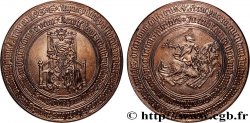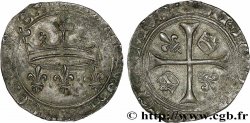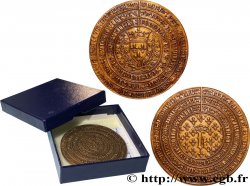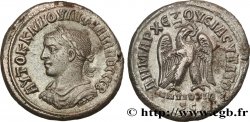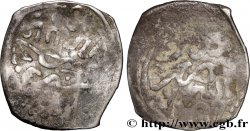Live auction - bry_429871 - CHARLES VII LE BIEN SERVI / THE WELL-SERVED Écu d'or à la couronne ou écu neuf n.d. Tournai
You must signin and be an approved bidder to bid, LOGIN TO BID. Accounts are subject to approval and the approval process takes place within 48 hours. Do not wait until the day a sale closes to register. Clicking on "BID" constitutes acceptance of the terms of use of cgb.fr private live auctions.
Bids must be placed in whole Euro amounts only. The sale will start closing at the time stated on the item description; any bids received at the site after the closing time will not be executed. Transmission times may vary and bids could be rejected if you wait until the last second. For further information check the Live auction FAQ
All winning bids are subject to a 18% buyer’s fee.
All winning bids are subject to a 18% buyer’s fee.
| Estimate : | 1 300 € |
| Price : | 895 € |
| Maximum bid : | 1 000 € |
| End of the sale : | 13 June 2017 15:28:12 |
| bidders : | 2 bidders |
Type : Écu d'or à la couronne ou écu neuf
Date: 20/01/1447
Date: n.d.
Mint name / Town : Tournai
Metal : gold
Millesimal fineness : 963 ‰
Diameter : 27,5 mm
Orientation dies : 7 h.
Weight : 3,46 g.
Rarity : R1
Coments on the condition:
Cet écu est frappé sur un flan large, légèrement irrégulier et voilé. Les lis de l’écu de France apparaissent légèrement en négatif au revers
Obverse
Obverse legend : (COURONNE PORTANT UN POINT) KAROLVS: DEI GRA: FRANCORVM: REX, (PONCTUATION PAR DEUX TRÈFLES SUPERPOSÉS).
Obverse description : Écu de France couronné accosté de deux lis couronnés.
Obverse translation : (Charles, par la grâce de Dieu, roi des Francs).
Reverse
Reverse legend : (COURONNE PORTANT UN POINT) XPC* VINCIT* XPC* REGNAT* XPC* IMPERAT, (PONCTUATION PAR UNE ÉTOILE).
Reverse description : Croix feuillue avec quadrilobe anglé en cœur, cantonnée de quatre couronnes, dans un double quadrilobe.
Reverse translation : (Le Christ vainc, le Christ règne, le Christ commande).
Commentary
Type monétaire rare et recherché, surtout pour la 3e émission qui ne fut frappée qu’entre janvier et mai 1447.







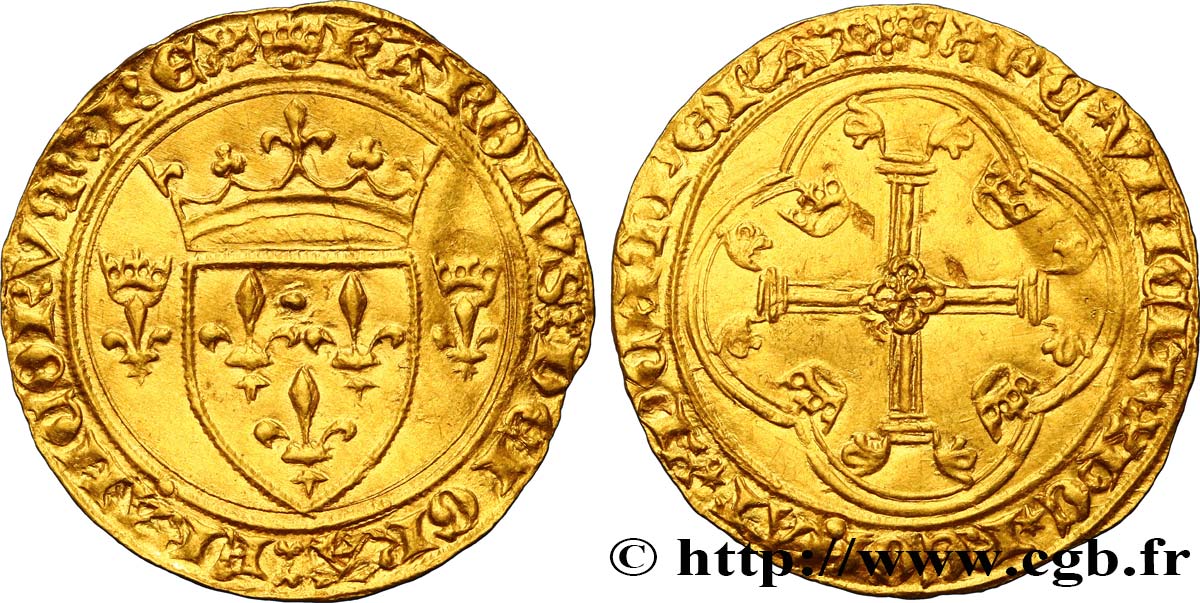
 Report a mistake
Report a mistake Print the page
Print the page Share my selection
Share my selection Ask a question
Ask a question Consign / sell
Consign / sell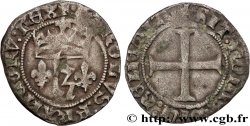
 Full data
Full data